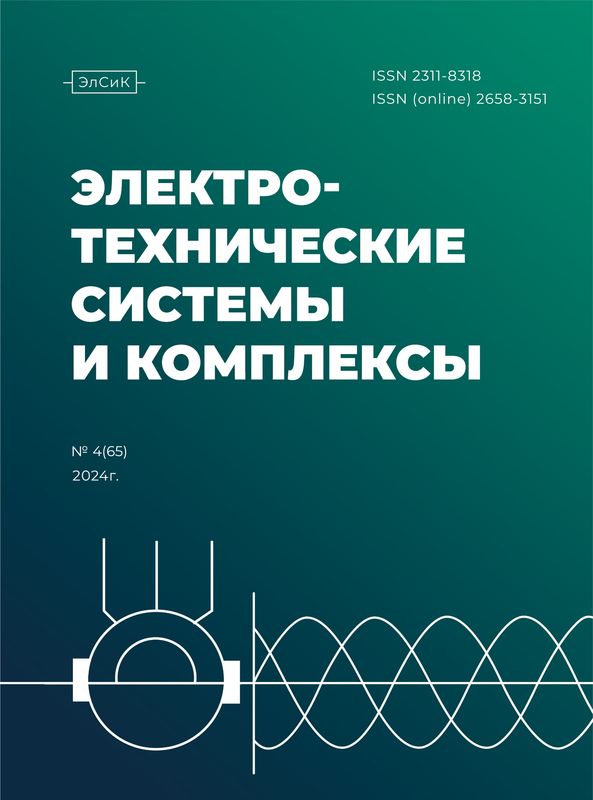Abstract
The development of regime management plans cannot be expected without forecasts, since they directly influence upon the quality of the entire regime management process. Electricity consumption and load graphs are the basis for energy balances and are therefore the focus of attention. The robustness of the forecast balances is very high. For many years, the most common way of describing electricity consumption has been the time series. To create it, you need to know the parameters (amplitudes, frequencies and phases) of the harmonics. The problem of simulation of electric consumption and load graphs of EPS with specific properties based on the application of artificial intelligence methods is considered. The paper considers various methods of simulation of load graphs and electric consumption (application of Fourier series, gradient optimization, methods based on swarm intelligence), which imply the selection of necessary coefficients. All this will help to improve the reliability of forecasts and will make it possible to increase the use of information technologies in the planning of EPS regimes. The tool used was the experimental software developed by the authors, which has a state registration certificate. In order to verify the universality of the methods of coefficient selection under consideration, further consideration was given to the Siberian interconnection system and the isolated electric power system of Gorno-Badakhshan Autonomous Oblast (GBAO).
Keywords
Power consumption forecasting, time series, Fourier series, gradient method, particle swarm method, bee swarm method.
1. Filippova T.A. Energeticheskiye rezhimy elektricheskikh stantsiy i elektroenergeticheskikh system [Power modes of power plants and power systems]. Novosibirsk, Publishing house of NSTU, 2005, 300 p. (In Russian)
2. Shen W., Babushkin, V. Aung, Z. Woon, W.: An ensemble model for day-ahead electricity demand time series forecasting. In: Proceedings of the Fourth International Conference on Future Energy Systems, pp. 51-62. ACM, New York (2013).
3. Filippova T.A., Sidorkin Yu.M., Rusina A.G. Optimizatsiya rezhimov elektrostantsiy i energosistem [Optimization of modes of power plants and power systems]. Novosibirsk, Publishing house of NSTU, 2016, 356 p. (In Russian)
4. Karpenko A.P. Population algorithms for global optimization. Review of new and little-known algorithms. Prilozheniye k zhurnalu "Informatsionnyyetekhnologii" [Appendix to the journal "Information Technologies"]. 2012, no. 7, pp. 1-32. (In Russian)
5. Kennedy J., Eberhart R. Particle Swarm Optimization. Proc. of IEEE International Conference on Neural Network, 1995, pp. 1942-1948. doi: 10.1109/ICNN.1995.488968.
6. Manusov V.Z., Matrenin P.V., Orlov D.V. Optimization of transformation coefficients using directed search algorithms and swarm intelligence. Problemy regionalnoy energetiki [Problems of regional energy]. 2017, no. 1 (33), pp. 15-23. (In Russian)
7. Eberhart R.C., Shi Y. "Particle swarm optimization: developments, applications and resources, " in Proc. Congress on Evolutionary Computation, vol. 1, pp. 81-86, 2001. doi: 10.1109/CEC.2001.934374.
8. Pham D.T., Ghanbarzadeh A., Koc E., Otri S., Rahim S., Zaidi M. The Bees Algorithm - A Novel Tool for Complex Optimisation Problems [Электронныйресурс] //Technical Note. Manufacturing Engineering Centre. Cardiff University.UK. 2005. URL: https://svn-d1.mpi-inf.mpg.de/AG1/MultiCoreLab/papers/Pham06%20%20The%20Bee%20Algorithm.pdf.
9. Karaboga D. An idea based on honey bee swarm for numerical optimization // Technical report TR06. Erciyes University, Engineering Faculty, Computer Engineering Department. 2005. URL: http://mf.erciyes.edu.tr/abc/pub/tr06_2005.pdf.
10. Metaxiotis K., Kagiannas A., Askounis D., Psarras J. Artificial intelligence in short-term electric load forecasting: a state-of-the-art survey for the researcher. Energy Convers. Manag. 44, 1525-1534 (2003).
11. Matrenin P.V. Description and implementation of algorithms for swarm intelligence using a systematic approach. Programmnaya inzheneriya [Software Engineering]. 2015, no. 3, pp. 27-34. (In Russian)










